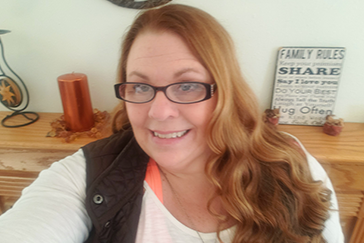Debra Norton didn’t recognize the signs of lung cancer.
She’d been losing weight for weeks, but Debra, a teacher, figured it was just her new summer job, helping tend bar at a family member’s northern resort. She was coughing a bit more too, but shrugged it off.
But when Debra got so dizzy she couldn’t get up from the couch, her daughter called 911. At the hospital, doctors discovered a concerning spot on her lungs.
Debra’s medical team had a treatment plan mapped out, but family and friends urged her to get a second opinion. A coworker raved about Dr. Raul Mendoza, an Aurora BayCare pulmonologist, so Debra made an appointment.
It’s a decision she thinks probably saved her life.
A Deadly Kind of Tumor
A biopsy revealed that Debra had a carcinoid tumor of the lung. While it’s a relatively slow-growing kind of cancer, carcinoid tumors can produce extremely high hormone levels. In a condition known as "carcinoid syndrome," these hormones can trigger a host of symptoms just like Debra’s, including diarrhea, weight loss, and dizziness.
If doctors aren’t aware of the nature of the tumor, a carcinoid tumor can release dangerous amounts of hormones during surgery.
"That original surgery plan — it could have been deadly," Debra recalls.
Instead of removing just the tumor itself, Debra’s team, including Dr. Mendoza and oncologist Dr. Umang Gautam, decided to remove two thirds of her lung. The procedure went well, and follow-up tests revealed that no additional treatment was needed. No chemo. No radiation.
"Surgery did it, and they took it out carefully," Debra says. "That’s the lifesaving part of it right there. Dr. Mendoza knew what to do."
Today Debra is seven years cancer free and breathing fine. The remaining lobe of her affected lung has expanded to fill the space and take over the workload.
Ditching the Cigarettes
While carcinoid tumors are not typically linked to smoking, the diagnosis was the wake-up call Debra needed to finally quit. A 30-year smoker who was once up to a pack a day, she hasn’t touched tobacco or any kind of e-cigarette since her operation.
"I made a promise to Dr. Mendoza," Debra says. "I promised him that I will help people, whoever is trying to quit smoking. As a teacher, I tell my students my story. I tell anyone who will listen. It’s hard, and it is a process, but it’s possible."
